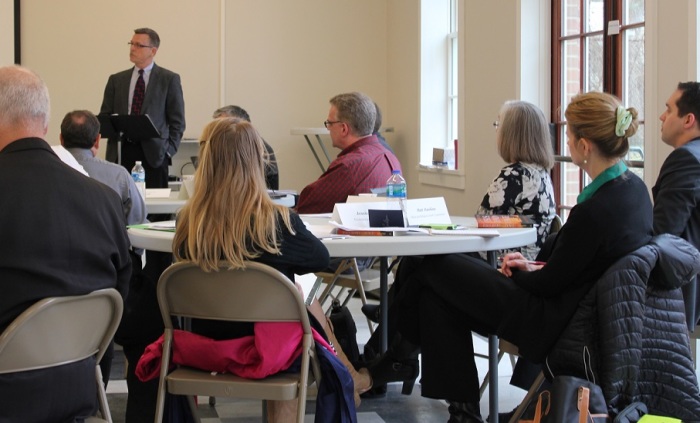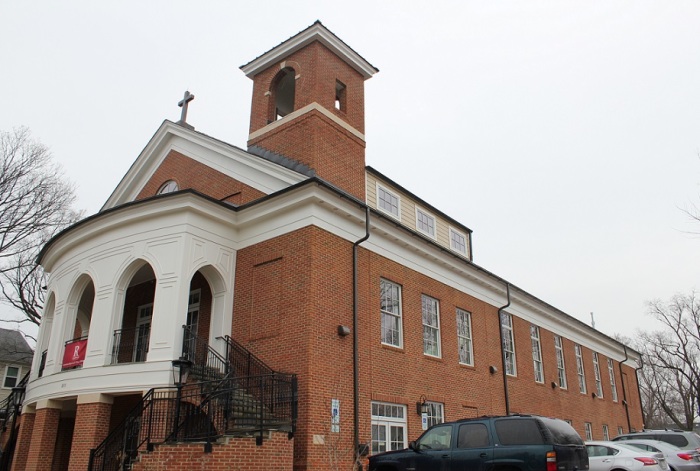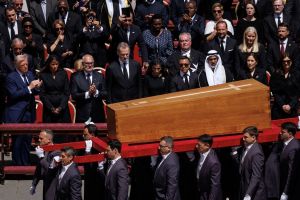Religious Freedom Concerns a 'Spreading Problem' for Both For-Profit, Non-Profit Groups, Says Expert at Common Ground Christian Gathering

ARLINGTON, Va. – A gathering of various Christian groups Tuesday focused on the need to offer legal religious liberty protection for non-church businesses and nonprofits, with one speaker noting that religious freedom concerns are a "spreading problem."
At the two-day spring meeting of the Common Ground Christian Network, held at Restoration Anglican Church, attendees heard from multiple speakers who talked about legal challenges facing parachurch groups and others. Stanley Carlson-Thies, founder and senior director of the Institutional Religious Freedom Alliance, spoke Tuesday morning about several points regarding religious liberty issues at home versus abroad.
"There are religious freedom concerns popping up all over the place," said Carlson-Thies to those gathered, calling it a "spreading problem."
Examples included efforts to coerce Christians in non-profits and for-profits alike to compromise on matters like providing insurance coverage for all forms of birth control or being compelled to provide services for a gay wedding.
In an interview with The Christian Post, Carlson-Thies explained that he felt that those who were attempting to limit religious freedom to churches were going after a sphere of life that religious individuals see as integral to their lives.
"For Christians, we have two commandments: first one is to worship God and the other is to love your neighbor," said Carlson-Thies, alluding to Matthew 22:37-40.
"Half of what we have to do, one of the two commandments, is all those things that go on outside the church building."
Carlson-Thies also told CP that it was important for the faith community, Christians and non-Christians, "to keep telling people" about how their faith and work goes beyond houses of worship.
"One way is having those businesses and nonprofits be more verbal and obvious about their faith," continued Carlson-Thies.

Held at Restoration Anglican Church, the Network's meeting began Monday morning with an official welcome and a devotional and prayer.
For the first morning, the Network featured remarks by recently retired U.S. Congressman from Virginia, Republican Frank Wolf.
Groups present for the spring meeting include the Institute on Religion and Democracy, Theology Matters, the American Anglican Council, and the Presbyterian Lay Committee.
In addition to Carlson-Thies, on Tuesday attendees also heard from Scott Ward, attorney with Gammon & Grange, a Christian law firm with offices in nearby McLean and Leesburg.
Ward examined potential legal challenges for churches and religious nonprofits regarding laws that may conflict with their convictions. He spoke about what he called the "emergent 'post-liberal' view" of religious liberty. This view involved little legal protection for religion outside of the institutional church.
Such a view could be found with legal efforts to get businesses and nonprofits, even if explicitly Christian in their practices, to provide all forms of birth control or to have to provide services for gay weddings.
Ward told CP that he felt this "post-liberal" legal perspective had "an increasing influence" in American law schools and courts.
"It's the view that is becoming the prevailing perspective in most major law schools. So when you think in terms of educating the next generation of lawyers and judges that really has gained great ascendency," said Ward.
This "post-liberal" perspective was replacing an earlier liberal view influenced by the Enlightenment that "religious liberty was a fundamental value" rather than a hobby or something solely to do in private.
Ward also told CP that he felt while churches maintained a level of protection, other groups both nonprofit and for-profit were targets.
"There is a greater vulnerability there in part simply because the emerging viewers would view them as less entitled to religious liberty protections," continued Ward.
"There is some concession, whether it is grudging or not, that churches are at the heart of the First Amendment. The text doesn't make that distinction … but that seems to be the distinction that is emerging."
The meeting and its focus on religious liberty come as President Barack Obama's anti-discrimination executive order from last year will take effect. Next month, President Obama's Executive Order 13672, which mandates that all entities with federal contracts must not discriminate on the basis of sexual orientation or gender identity, will be effective.
Conservative groups have denounced EO 13672, arguing that it lacks good religious exemption for entities that may have federal contracts and also moral objections to homosexuality or transgenderism.
When asked by CP about whether or not gay rights and religious freedom could coexist in the United States, Carlson-Thies of the IRFA responded that Americans "have to find a way for them to coexist."
"People are very committed to LGBT rights and there are certainly abuses that people need to be protected against," said Carlson-Thies.
"But at the same time, religious freedom is actually in the First Amendment. It is right there, so there has to be a way to figure out how those fit together."





























